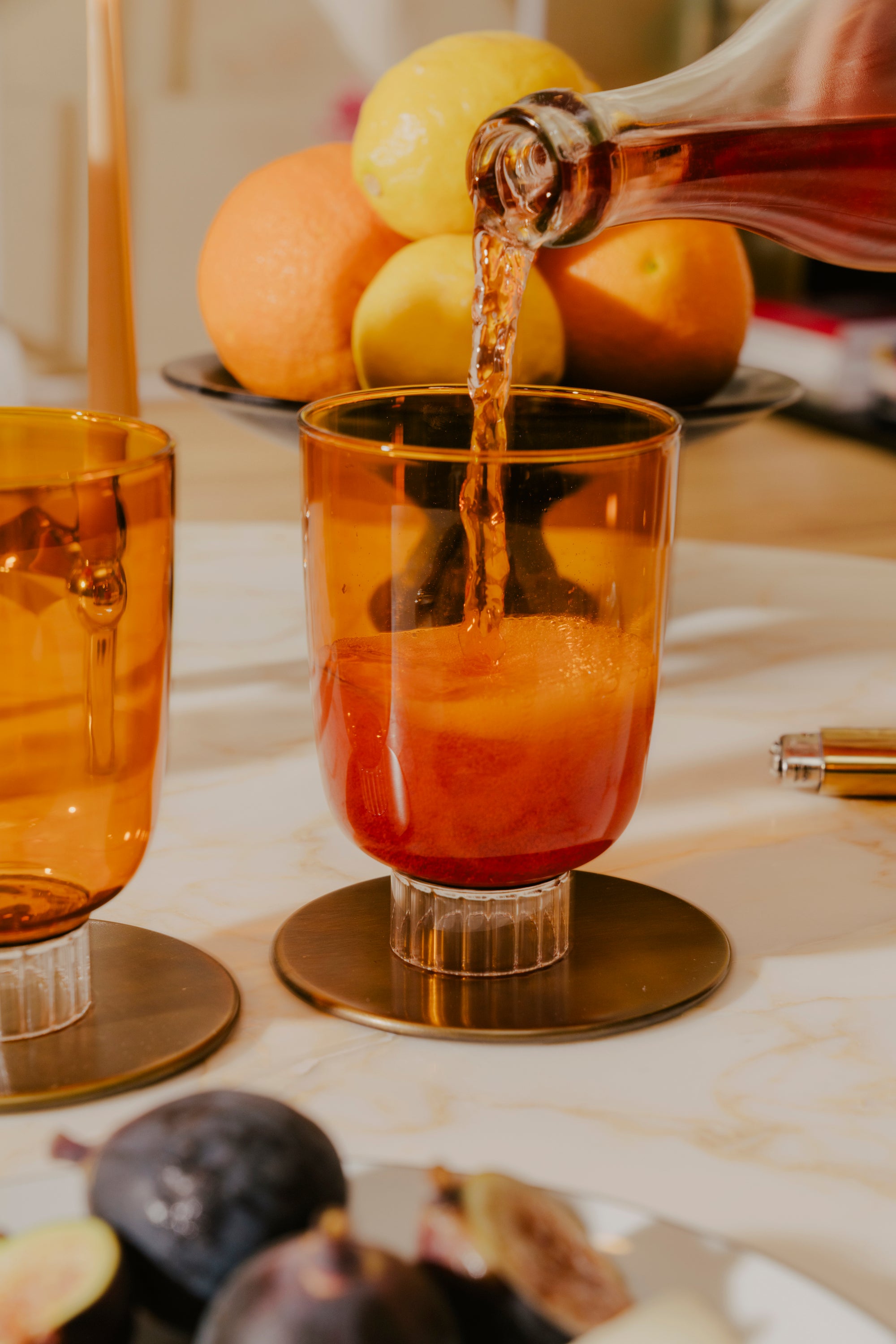Unseen Chemicals in Your Kitchen
As if the specter of microplastics contaminating our drinking water wasn't disquieting enough, the glasses we use daily might be adding an extra layer of toxicity to our lives. Recent studies, such as one conducted by the University of Plymouth, have unveiled a disconcerting truth — many of the vessels from which we sip our favorite beverages may contain dangerous amounts of toxins. The research involved testing 72 new and second-hand glass products, revealing that lead was present in 139 cases and cadmium in 134 cases, with concentrations sometimes surpassing 1000 times the limit level.
The findings indicate that flakes of paint could detach from the glass during prolonged use, posing a risk of ingestion over time, which unfortunately means that often, vintage glassware poses its own set of challenges due to the historical use of lead oxide in the manufacturing process. Additionally, exposure to Cd(2+) has been associated with detrimental effects on reproduction, influencing progesterone biosynthesis differently in steroidogenic tissues.
Healthy Alternatives Applies to Kitchenware, Too
Although unseen, the impact of these chemicals on our health can be profound. From PFAS "forever chemicals" in nonstick cookware to bisphenol in plastic containers, and lead in ceramics, every meal preparation seems to come with its own set of potential hazards. It's a daunting reality, but one that prompts us to seek safer alternatives for our kitchenware.
The good news here is that for every plastic kitchen product, there exists a safer alternative, be it wood, stainless steel, or, in our case at Sprezz – borosilicate glass.
A Holistic Healthy Lifestyle Includes Non-Toxic Glass
In a world where people invest thousands of dollars into healthy skincare products, shower water filters, organic food, oil-free nut milks, nontoxic bedding, etc, the importance of our kitchenware materials should never have been left out of the conversation. If we are meticulous about the substances we apply to our skin and hair, why aren't we equally vigilant about the vessels from which we consume the most essential element for our well-being – water? Or a margarita, or champagne?
What is Borosilicate Glass?
Let’s get a little nerdy - borosilicate glass, developed in 1882 by German chemist Otto Schott, stands out as a specialized type of glass renowned for its resistance to thermal shock and low coefficient of thermal expansion. Its chemical composition typically includes silicon dioxide and boron trioxide, with boron providing dimensional stability, ensuring the glass can endure extreme temperature variations without shattering. Key properties such as chemical resistance make borosilicate glass suitable for diverse applications, including laboratory glassware, scientific lenses, cookware, thermal insulation, high-intensity lighting products, sight glasses, aircraft exterior lenses, and electronics. And, of course, as a non-toxic durable option for kitchen and dinnerware!
Sip Safely with Sprezz
The health benefits of choosing borosilicate glassware are just as important as the choice to buy organic produce. As we navigate the labyrinth of healthy lifestyle choices, we at Sprezz are committed to making the choice of nontoxic table and glassware easy, and non-compromising. Don’t sacrifice your love of colored glassware for fear of exposure to potentially harmful chemicals – Sprezz non-toxic borosilicate glassware is just as good for you as it looks.
Fill your cabinets with Sprezz and join us as we sip safely and embrace the healthier, toxin-free lifestyle of using borosilicate glass!
